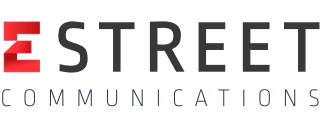E Street Acceptable Use Guidelines, Policies
and General Services Agreement
E Street believes in the honesty and good intent of our clients. Our services are provided in as unrestricted a manner as possible in order to allow all of our clients to have the best Internet experience possible. When connected to the Internet, you become part of a global network with a wide and diverse range of beliefs and should give due regard to the rights of other Internet users. Common sense, respect, courtesy and responsibility are your best guides for using the Internet.
As a policy guideline, E Street customers engaging in services provided by E Street  are considered in agreement and compliance with E Street’s MASTER TERMS AND CONDITIONS Agreement which are the conditions of service and guidelines applicable to all E Street customers using our products and services. A copy may be viewed/downloaded at right.
are considered in agreement and compliance with E Street’s MASTER TERMS AND CONDITIONS Agreement which are the conditions of service and guidelines applicable to all E Street customers using our products and services. A copy may be viewed/downloaded at right.
E Street reserves the right to determine what constitutes “abuse” of, website content, network, bandwidth, email, and CPU utilization. E Street reserves the right to determine appropriateness of website content. For customers found to be “abusing” E Street services, E Street will make a good faith effort to notify the customer of the violation. If contact is unsuccessful or the abuse is not immediately corrected, services may be terminated at E Street’s discretion.
To learn more about the acceptable use of the Internet, read through E Street’s guidelines and policies and then browse the “Netiquette” link at the end of this page.
1.) What activities should I avoid?
E-Mail Abuse | Usenet/Newsgroups Abuse | Network/Resource Abuse
2.) What is E Street’s policy regarding “abuse”?
3.) How does E Street handle “Adult” content?
4.) Where can I find out more?
1.) What activities should I avoid?
E Street follows the self governing rules of ‘netiquette’ or Internet etiquette that are assumed to be understood by all Internet users. Common sense is the best guide in determining activities to avoid. While using the Internet, avoid the following activities :
- Spamming – Spam is defined as: the unsolicited sending of e-mail to multiple recipients who have not requested the information. Spam will not be tolerated on the network and violators may be subject to unannounced username change and/or cancellation of service.
- Do not use a non-existent e-mail return address on commercial solicitation
- Do not mount attacks such as ‘mail bombing’ or the sending of three or more unsolicited pieces of e-mail or files exceeding 60K
- Do not subscribe someone to a mailing list without that person’s permission
- Do not troll or post outrageous newsgroup messages to generate numerous responses
- Do not cross-post articles to an excessive number of UseNet newsgroups
- Do not flood the UseNet with a single post to a large number (10 or more) of newsgroups not related to the topic of your article
- Only post messages to UseNet that meet the specific newsgroup’s charter or purpose
- Do not use network ‘flood’ techniques to deny others access to services
- Multiple Logins – A multiple login occurs when the same account (username and password) is used to login multiple times simultaneously, either at the same or a different POP. E Street dial-up accounts are designed to be used by a single person from only one location at a time. (contact support@estreet.com if you feel that someone has stolen your password or using your account in an unauthorized manner)
- Dial-Up “Unlimited Access” – The term “Unlimited Access” in E Street promotions and dial-up service offerings is a connection that is not to exceed 300 hours per month, per username. At no time, unless otherwise contracted, is an “unlimited” connection considered a dedicated connection. Users utilizing dial-up connections in excess of the monthly allotment stated above may be subject to overage fees, unannounced username change and/or cancellation of service.
- Do not use packet sniffers or any software meant to capture network packet traffic
2.) What is E Street’s policy regarding “abuse”?
E Street reserves the right to determine what constitutes abuse. If any of our clients are found to have participated in any of the following actions that E Street considers abuse, we reserve the right to immediately suspend logins and/or terminate any account provided by E Street. E Street will cooperate with law enforcement agencies investigating illegal activities facilitated by abuse of E Street services.
Spam
Spam is best defined as: the unsolicited sending of bulk e-mail to people who have not requested the information. If you are thinking about trying ‘SPAM’ marketing, not only will you find the response negative and our tolerance for it small, you will also find it…….ILLEGAL!
SPAM is by the far the most common violation of AUP we see – often website owners believe they have “clean” lists of users but E Street services for hundreds of customers can be disrupted by bulk emailing of any type from our servers.
By US Title Code 47, Sec.227(a)(2)(B), a computer/ modem/ printer meets the definition of a telephone fax machine. By Sec.227(b)(1)(C). it is unlawful to send any unsolicited advertisement to such equipment, punishable by action to recover actual monetary loss, or $500, whichever is greater, for each violation.
Including but not limited to:
- The unauthorized distribution, copying or storage of copyrighted software
- Violation of U.S. export restrictions
- Violation of copyrights, trademarks, or other intellectual property rights
- Fraudulent behavior
- Displaying, distributing or trafficking in obscene material
- Drug dealing
Harassment
- Physical threats against another person via e-mail, news groups or any other electronic media/service we provide
- Intentionally inflicting emotional distress
- Tortuous conduct, including but not limited to posting of defamatory, scandalous, or private information about a person without their consent
Disruption of Network Services
- Unauthorized access and attempts to “hack” a server root or user logins and passwords on any machine on any network is forbidden
- The use of packet sniffers or similar programs designed to capture and analyze internet traffic is not allowed under any circumstances
- Deploying third party software or scripts within websites or Email services to maximize server resources for your own uses.
Resale of E Street Services
Unless by written consent of E Street or under the E Street Webhosting – “Web Partners” program, resale of services is not allowed. You can write to support@estreet.com if you have any questions.
Servers & Network
Dial-Up and Dynamic DSL Internet access services may not to be utilized as a “Dedicated” Internet circuit. E Street reserves the right to determine what constitutes excessive bandwidth/network utilization for a given account. For “Dedicated” Internet circuits contact E Street for price quotes. Without the prior knowledge and consent of E Street, users may not run any type of “server” from or on any E Street connected network.
3.) How does E Street handle “Adult” content?
As a matter of policy, E Street does not allow ‘adult’ or pornographic content sites to be hosted on our servers. Given that ‘adult’ is very difficult to define, we will use our best judgment in determining what constitutes ‘adult’ content. If you have a question about what we consider ‘adult’, give us a call.
Until Internet content is more effectively governed – Internet “browsing” is for adults only! If you are not concerned about minors accessing inappropriate material, you should be. There are many inappropriate websites that are easily accessible by children. E Street does not filter or try to determine the appropriateness of Internet content in any way. It is each users responsibility to filter Internet content for your business or home situation. E Street strongly suggests all parents contact and use the one of the following companies that make content filtering software:
4.) Where can I find out more?
We encourage our clients to learn as much as possible about how the Internet functions, uses which are acceptable and those which are to be avoided.
The best resource on netiquette and the acceptable use of the Internet can be found at the ‘Netiquette Home Page’ from Albion.

